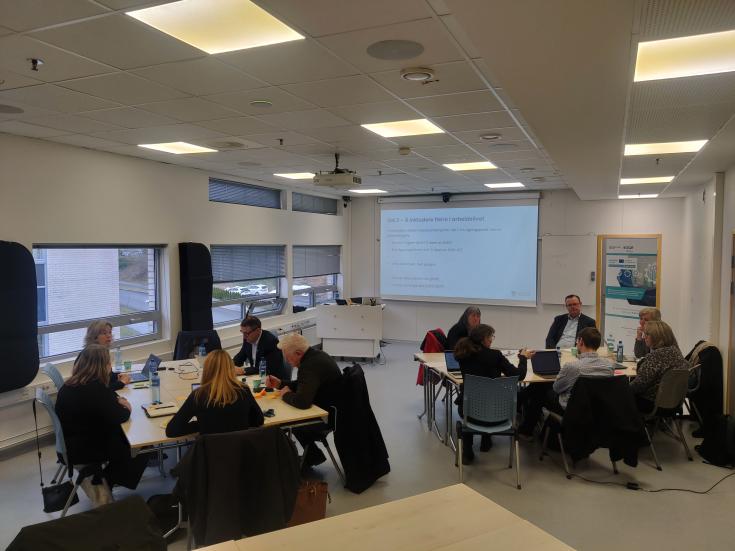Regional Dissemination Event in NORWAY on January 16th.

On January 16th, Møre and Romsdal County Council hosted a Regional Dissemination Event in Ålesund. They brought together representatives from Volda University College, NTNU (Norwegian University of Science and Technology) Ålesund, Molde University College, Vocational college/Technical college (Fagskolen) in Møre and Romsdal, Borgund Upper Secondary School, Health Møre and Romsdal (the local health authority), NAV (Norwegian Labor and Welfare Organization), LO, NHO (Main Organization in Business Sector). The event started with a presentation about background on the work of the Competence Forum and followed up with a workshop sessions on identifying key collaboration challenges, discussion on workforce inclusion strategies and enhancing attractiveness of the region for students and professionals.
Some key elements that were part of the discussions were:
- Background and competence policy in Møre and Romsdal: MRCC provided an overview of the Competence Forum’s role in shaping regional skills development. This effort was linked to broader policies in workforce and educational planning, underlining how initiatives like PROACTsme play a role in addressing skills gaps and fostering regional collaboration.
- Challenges in education and workforce alignment: NTNU Ålesund highlighted concerns about falling interest in science and mathematics, particularly affecting engineering and technology fields. This trend impacts regional innovation capacity, an area where PROACTsme could contribute by promoting applied research and practical learning initiatives.
- Mismatch in vocational training and workforce demand: While vocational education has high enrollment, many students transition to preparatory programs for higher education instead of entering apprenticeships. This results in an insufficient supply of skilled workers in technical fields.
- Workforce mobility: NAV reported low geographic mobility among students and workers, limiting access to available training programs and jobs elsewhere in the region.
- Strategies for workforce inclusion: The forum discussed approaches to integrating more people into the workforce, aligning with PROACTsme’s goal of strengthening industry-education partnerships.
- Strengthening the region’s attractiveness: To attract students, researchers, and skilled workers, participants suggested:
- Better promotion of career opportunities in the region, emphasizing competitive advantages such as innovation hubs and quality of life.
- Enhancing cooperation across educational levels, making it easier for students to transition between vocational and academic paths.
- Offering summer jobs and internships to improve student retention and establish stronger connections between academia and industry.
- Exploring AI and digital transformation initiatives, areas where PROACTsme could facilitate knowledge exchange and business-academia collaboration.
The meeting highlighted key challenges in education-workforce alignment, inclusion strategies, and regional attractiveness, many of which align with the objectives of PROACTsme. Moving forward, stronger cross-sector collaboration and practical pilot projects could help drive impactful solutions.
